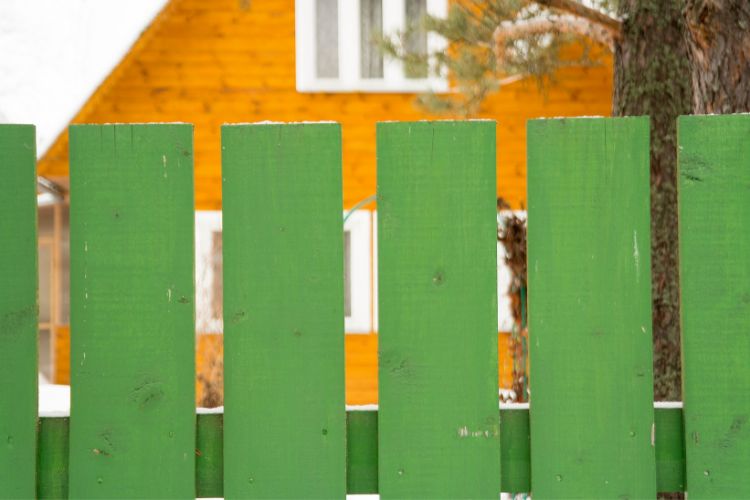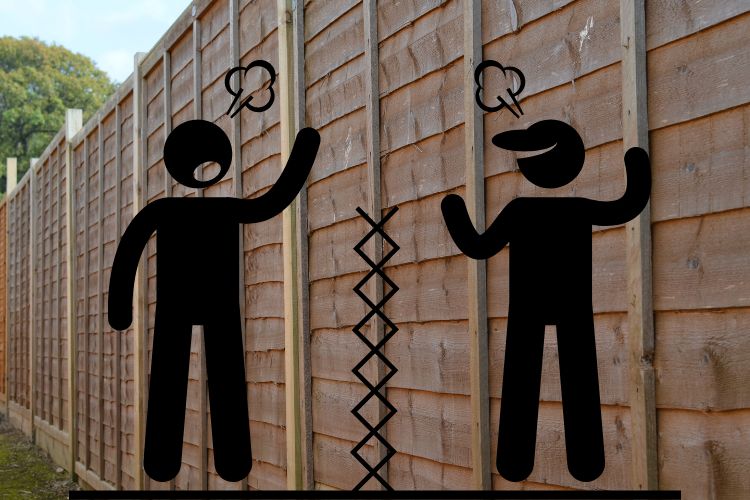Party Wall Disputes | Advice on Resolutions & Compliance
Party wall disputes, an all too common occurrence between neighbours, can be a source of frustration and tension. Governed by the Party Wall etc. Act 1996, these disputes often arise when alterations or construction work is carried out on party structures, such as shared walls or boundary walls. To ensure that these matters are resolved fairly and amicably, it's crucial to follow the proper procedures and seek the assistance of professionals, such as an agreed surveyor, to help navigate the complexities involved.
One essential aspect of resolving party wall disputes is providing a party wall act notice, which informs the neighbour of the proposed work in accordance with the party wall legislation. This notice ensures transparency and allows the neighbour to express any concerns or objections they may have. By understanding the intricacies of party wall disputes and respecting your neighbour's rights, you can work towards a harmonious resolution that keeps everyone satisfied.
This comprehensive guide will shed light on the complex world of party wall disputes and help you navigate through the process, understanding your rights and responsibilities under the Party Wall etc. Act 1996.
Party Wall Surveyor Quote
Understanding Party Walls and the Party Wall Act

Party Walls and Structures
A party wall is a shared wall that stands between two properties and forms part of the buildings on both sides. It may be a part of a building or a garden wall separating adjoining gardens. Boundary walls, on the other hand, separate two owners' lands but do not form part of a building.
The Party Wall etc. Act 1996
The Party Wall Act 1996 is a legislative framework designed to prevent and resolve disputes in relation to party walls and other boundary structures. The Act provides clear provisions and guidelines for building owners who wish to carry out work covered by the Act, while also protecting the rights of adjoining owners.
Party Wall Disputes: Causes and Resolution
Common Causes of Disputes

Party wall disputes often arise from building work, excavation or proposed work to the party wall. Issues may include:
- Damage to the existing party wall
- Disagreement over new wall construction
- Disputes over boundary lines and ownership

Frequently Asked Questions
1. When must a building owner give a party wall notice?
A building owner must give a party wall notice to the adjoining owner at least two months before the proposed work begins.
2. What happens if a neighbour doesn't respond to a party wall notice within 14 days?
If the adjoining owner does not respond within 14 days, a dispute is deemed to have arisen, and the building owner must appoint a party wall surveyor to act on their behalf.
Who bears the cost of the party wall surveyor? In most cases, the building owner who wishes to carry out work will bear the costs associated with drawing up the party wall agreement and appointing the surveyor(s).
3. Can an adjoining owner prevent the proposed work on a party wall?
The Act doesn't give an adjoining owner the right to refuse consent outright. However, they can express their concerns and negotiate the terms of the party wall agreement to protect their interests.
4. What happens if a building owner fails to comply with the Party Wall Act?
If a building owner fails to comply with the provisions of the Party Wall Act, they may face legal action from the adjoining owner, resulting in potential injunctions, damages, or compensation claims. It is essential for both building and adjoining owners to seek legal advice on party wall disputes to ensure they understand their rights and obligations under the Act.

Preventing Disputes with Neighbours and Ensuring Compliance
To prevent disputes and ensure compliance with the Party Wall etc. Act 1996, building owners should:
- Give appropriate notice of their intentions, as required under the Act
- Seek professional advice from chartered surveyors or party wall dispute solicitors
- Communicate openly and honestly with adjoining owners to address concerns and find mutually agreeable solutions
Adjoining owners should:
- Respond promptly to party wall notices
- Seek legal advice on party wall disputes to understand their rights and obligations
- Cooperate with surveyors and building owners to reach a fair and reasonable agreement
Dispute Resolution Process
The Party Wall Act aims to prevent and resolve disputes by requiring building owners to give adjoining owners notice of their intentions to carry out work covered by the Act. Adjoining owners have 14 days to respond, and if they refuse or fail to do so, a dispute is deemed to have arisen.
Building owners must then appoint a surveyor or agree on an 'agreed surveyor' with the adjoining owner. The surveyor(s) will work towards a party wall award or agreement, detailing the proposed work, conditions, and any necessary compensation. If the two surveyors cannot agree, they may appoint a third surveyor to resolve the matter.
In some cases, a county court may be involved in the dispute resolution process, especially if a party wall dispute solicitor has been engaged for legal advice.
Conclusion
Party wall disputes can be a source of tension between neighbours, but the Party Wall etc. Act 1996 provides a clear framework for preventing and resolving such conflicts. By understanding the Act's provisions, seeking professional advice, and maintaining open communication with neighbours, both building and adjoining owners can work together to ensure a smooth and amicable resolution to any party wall matters that may arise.
Recent Reviews from Harding Chartered Surveyors
Discuss Party Wall Matters with Us Today
If you need further guidance or support regarding a party wall dispute, it's essential to get in touch with experienced professionals such as Harding Chartered Surveyors. We can be your trusted partner in resolving party wall disputes. With our wealth of experience and knowledge, we can provide expert guidance and support throughout the process, ensuring that all parties involved comply with the Party Wall etc. Act 1996. By offering comprehensive advice, facilitating communication between neighbours, and delivering fair and unbiased party wall awards, Harding Chartered Surveyors can help you navigate the complexities of party wall disputes with confidence and ease. So, when faced with party wall issues, don't hesitate to turn to Harding Chartered Surveyors for professional assistance and a smooth resolution.
Harding Chartered Surveyors
With our professional help, you can simplify the process of altering a party wall while complying with the law and minimising the risk of disputes and costly setbacks. We can help leaseholders, homeowners, landlords and investors save time, money and effort, and we always provide free quotes upfront.
London Party Wall Surveyors help prevent and resolve any disputes arising from changes you plan to make to your property that could affect theirs. This includes party walls, shared boundaries and excavation work within 3-6 metres of their property. With our help, you can improve your home and increase its value, stress-free. Harding Chartered Surveyors are specialist Party Wall surveyors, please contact us today to find out more about our services or get some advice.















